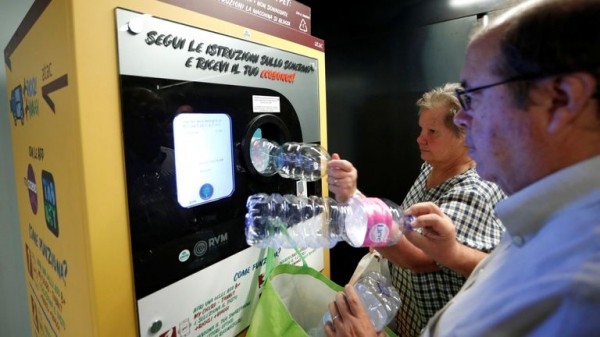Plastic-for-tickets: Free travel for recycling in Rome
Under the scheme, passengers accrue credit for every plastic bottle they recycle which can be used to purchase metro tickets.

Travellers in Rome are being offered free metro tickets in exchange for plastic bottles as part of a scheme to make the city more environmentally friendly.
The plastic-for-tickets venture, launched by the Italian capital’s public transport company ATAC, is currently running at three stations.
But transport chiefs have said because the public response to the initiative has been positive, the plan is to extend it across the whole metro network until July 2020.

Under the scheme, passengers can deposit plastic bottles at stations in exchange for a €0.05 credit that can be spent to purchase online tickets.
They need to download an app onto their mobile phones which registers the number of tickets they have earned on the basis of the number of bottles fed into the recycling machines.
A standard ticket – valid for one metro ride or 100 minutes on all buses allowing transfers – costs €1.50 so an individual would have to recycle 30 bottles to afford it.

Rome in ruins: Rage over Eternal City's decline
Its ancient ruins still stand but the Italian capital is crumbling under years of mismanagement, corruption and indifference
The metro turnstiles can directly read the app on mobile phones, so those taking part do not need to buy a paper ticket.
The scheme has been welcomed by residents who have watched the city’s streets become swamped with rubbish due to a collection problem and inefficient recycling facilities.
The bins of the Eternal City are overflowing – and in June doctors warned of a serious health risk amid the summer heatwave.

It has been a long-running problem since the city was left with no major site to treat the 1.7 million metric tons it produces every year when the Malagrotta landfill was closed in 2013.
“The situation is quite disastrous,” said Stefano Ciafani, president of environment group Legambiente.
“Rome has failed to create an efficient system for differentiated waste collection, as Milan has done, and it has not built the recycling plants that are fundamental for a city where three million people live.
“If the waste treatment plant is closed and no recycling plants are created on the territory, the waste will continue to be exported outside the region as it is today.”
Previous article
Former Thomas Cook staff demand government support
Next article
Saudi Arabia to open its doors to foreign tourists for the first time
